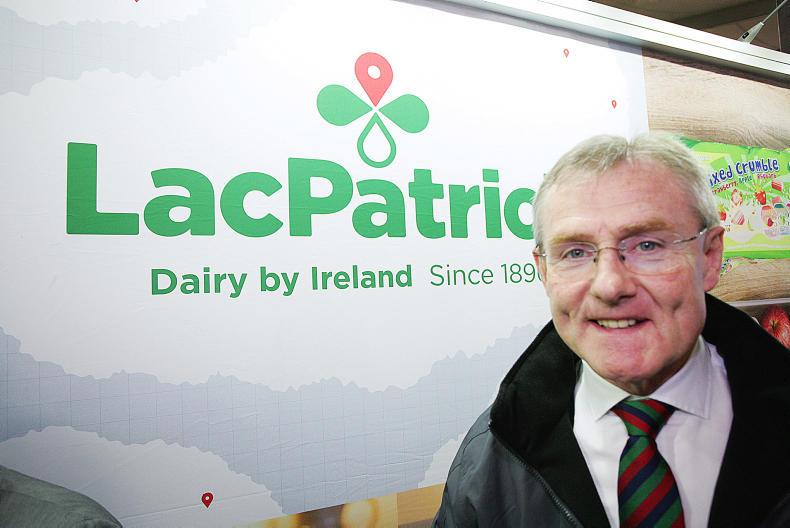The Ulster dairy industry will have to address inefficiencies around milk transport and processing if it is to pay a price that is consistently competitive in European terms, according to LacPatrick chief executive Gabriel D’Arcy.
The wider solution
Ahead of the opening of a new £30m technology centre in Artigarvan this week D’Arcy said that consolidation is part of a wider solution that also includes other issues such as investing in processing of new, higher-value products.
“To pay a sustainable milk price long into the future, we need to be more competitive and more innovative. That enables us to pay suppliers a stronger milk price.
There is a critical need for consolidation in the dairy industry,” he told the Irish Farmers Journal.
Sub-scale operation
He believes that all co-ops are operating sub-scale, with up to eight management teams and up to eight sales and distribution teams operating across Ulster, when in practice one management team and one sales team could effectively do the same job.
“You go out of here on to any of the local roads, and you will get stuck in a traffic jam of milk tankers from all the different companies going off to different farmers.
That is waste with a capital W. And it is farmers who are paying for that waste,” said D’Arcy.
He also points out that his main competitors are not other local co-ops, but the likes of Arla, Fonterra and Milcobel, who are supplying into target export markets.
Read more
Beef trade continues to edge down
Sharp rise in fertiliser price
The Ulster dairy industry will have to address inefficiencies around milk transport and processing if it is to pay a price that is consistently competitive in European terms, according to LacPatrick chief executive Gabriel D’Arcy.
The wider solution
Ahead of the opening of a new £30m technology centre in Artigarvan this week D’Arcy said that consolidation is part of a wider solution that also includes other issues such as investing in processing of new, higher-value products.
“To pay a sustainable milk price long into the future, we need to be more competitive and more innovative. That enables us to pay suppliers a stronger milk price.
There is a critical need for consolidation in the dairy industry,” he told the Irish Farmers Journal.
Sub-scale operation
He believes that all co-ops are operating sub-scale, with up to eight management teams and up to eight sales and distribution teams operating across Ulster, when in practice one management team and one sales team could effectively do the same job.
“You go out of here on to any of the local roads, and you will get stuck in a traffic jam of milk tankers from all the different companies going off to different farmers.
That is waste with a capital W. And it is farmers who are paying for that waste,” said D’Arcy.
He also points out that his main competitors are not other local co-ops, but the likes of Arla, Fonterra and Milcobel, who are supplying into target export markets.
Read more
Beef trade continues to edge down
Sharp rise in fertiliser price






 This is a subscriber-only article
This is a subscriber-only article










SHARING OPTIONS: